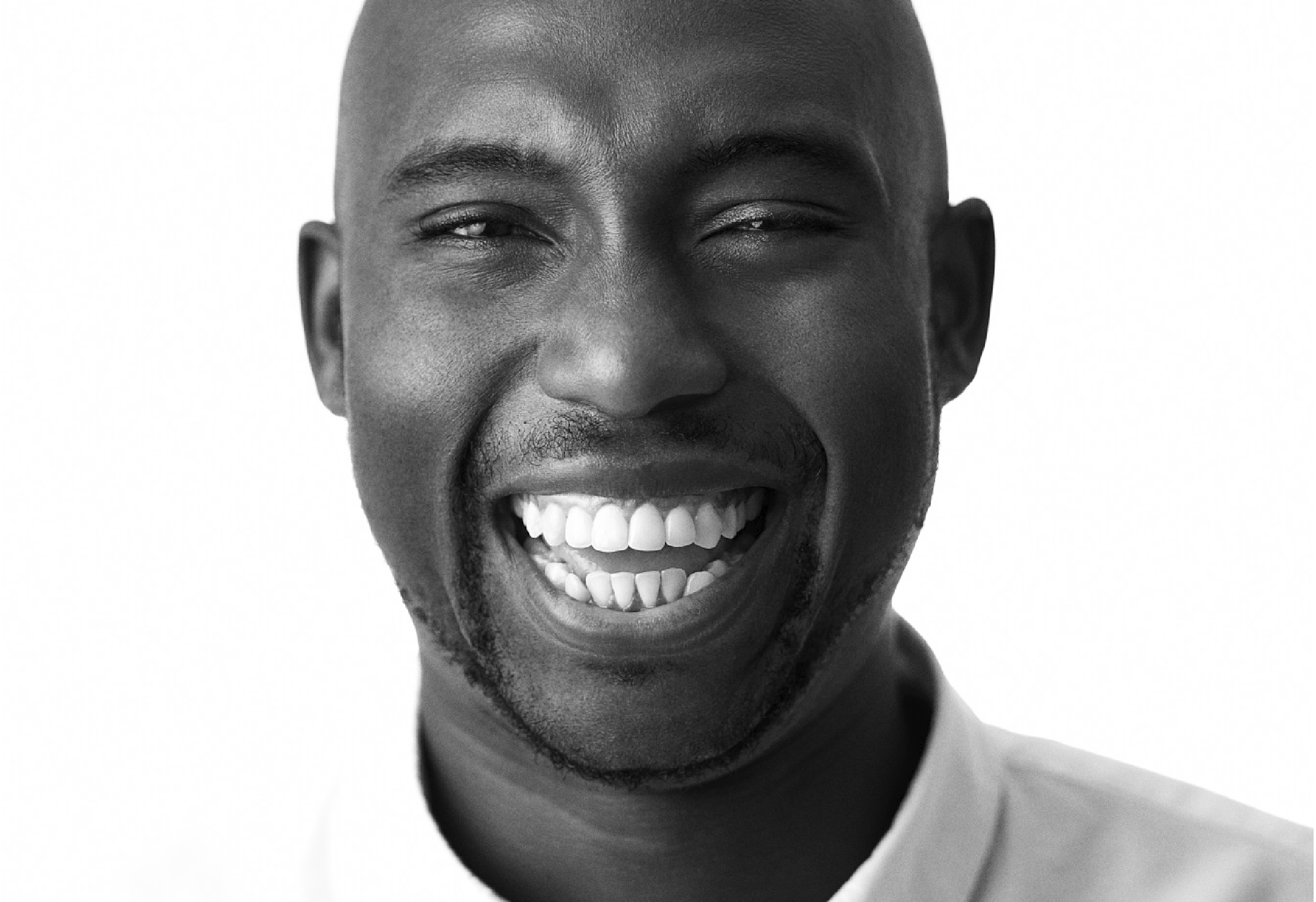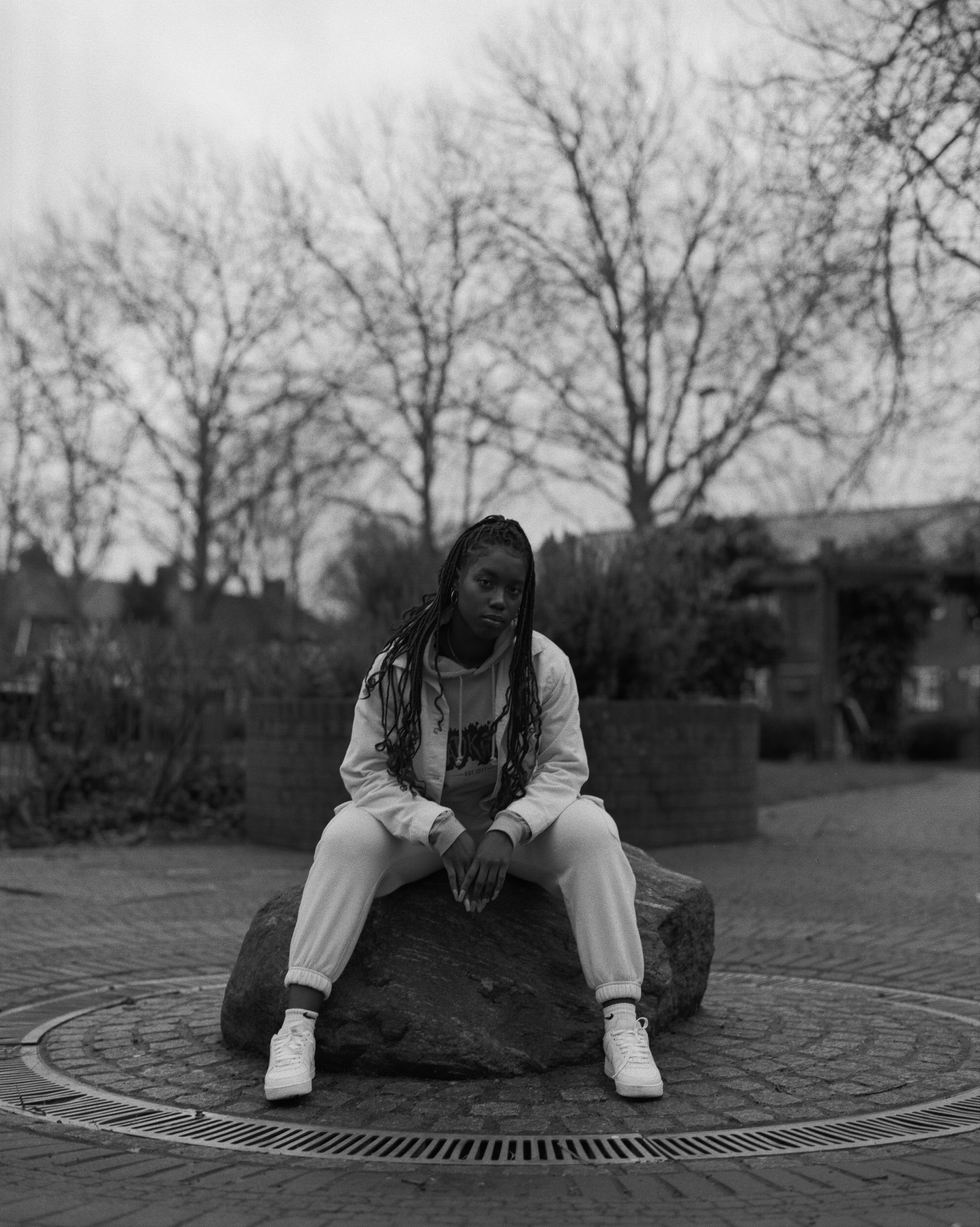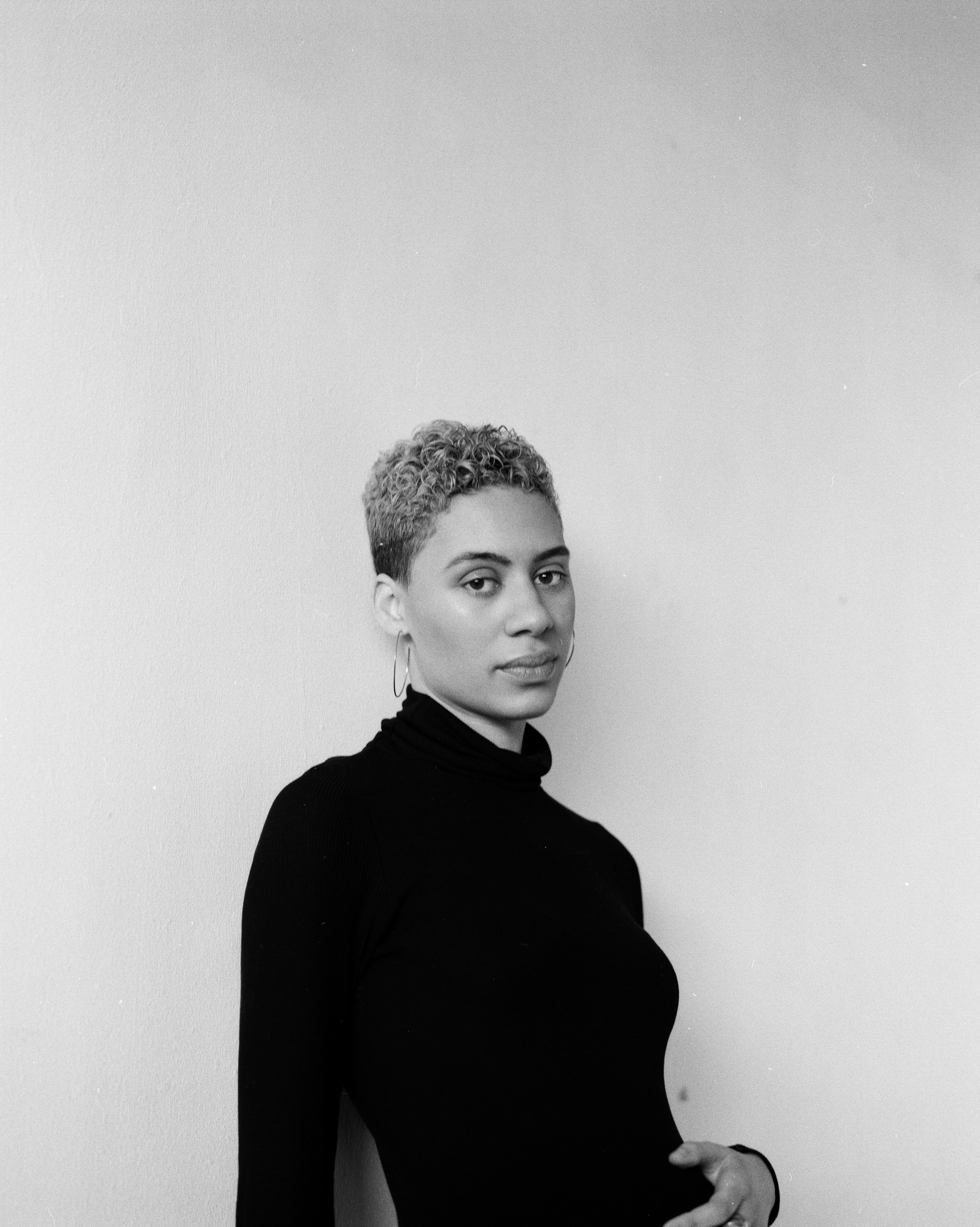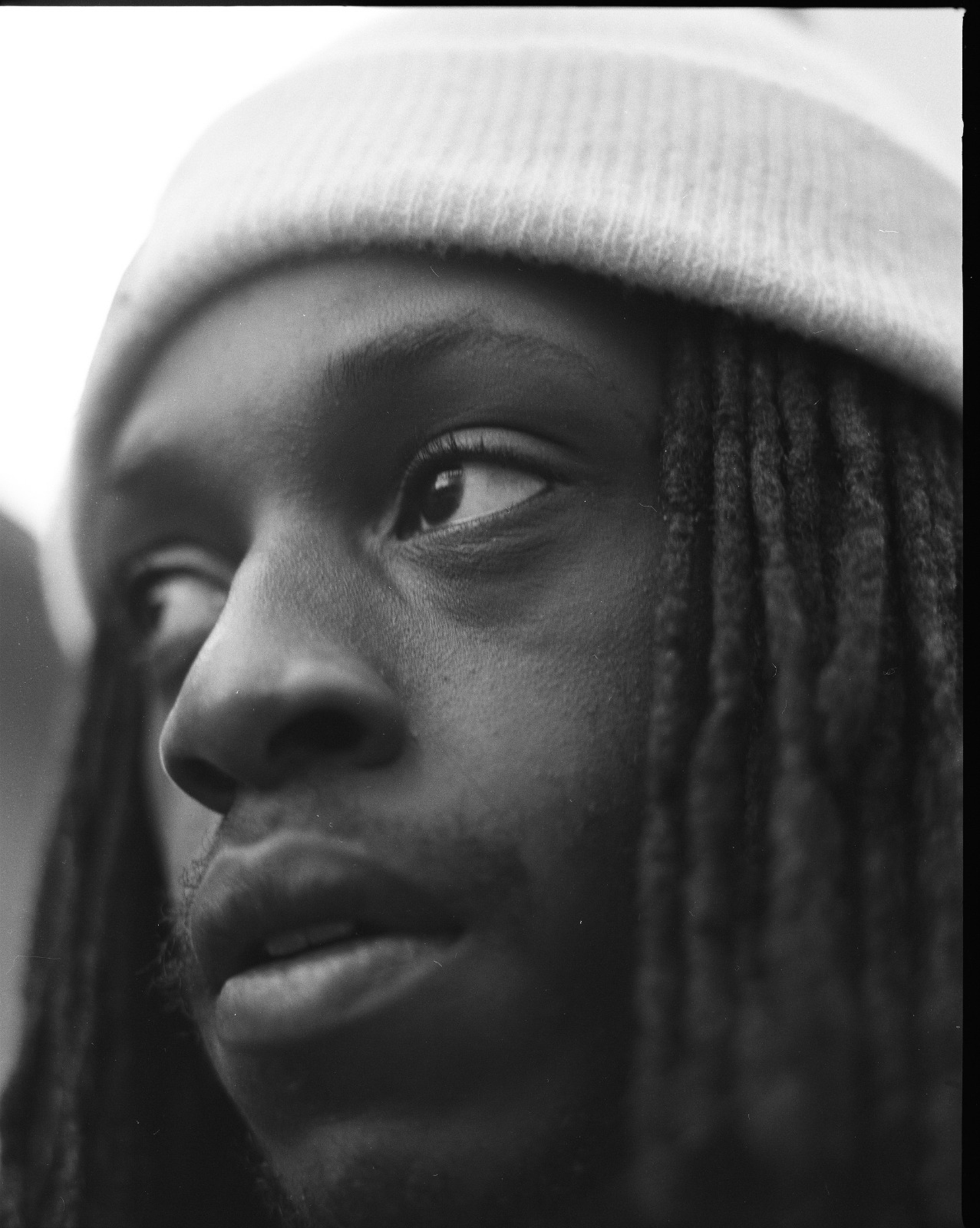
- Home |
- Search Results |
- Caleb Azumah Nelson: how my love for photography helps me be a better writer
Caleb Azumah Nelson: how my love for photography helps me be a better writer
Ahead of the release of his debut novel 'Open Water', the author reflects on how taking portraits nourishes his fiction.
It starts with an urge.
The way light might graze someone’s face in the middle of the day, or someone’s eyes might glint in almost dusk. I was told recently photography means writing light and it’s usually the way light might interact with a person, or vice versa, that I’m attracted to. What light might reveal, what might emerge and shine from the shadows.
The last person I made portraits of was my younger sister. We know each other well but the knowing of someone involves being open to learning more. It involves trust. That day, the light fell true and whole, the sky an uninterrupted blue and while we stood outside, in front of our family home, I asked if I might bring my camera out too.
I made a few images underneath a tree, placing her in space where the branches had boughed, forming a frame of sorts. I made another as I stood on one side of the road, she on the other, traffic cutting through at intervals. The last shot was my favourite: she was sat on a low brick wall, leaning forward, her hands resting softly between her knees, her gaze direct and sure and honest. She wasn’t hiding. There was trust there.

When I make portraits, I try to interfere as little as possible. Most are happy with the openness and freedom a park or public space might provide, but some prefer the intimacies of more enclosed spaces, their homes or an office. We talk and I let the conversation amble and wander to wherever it might go, wherever it might not. This, I believe, is where the portrait is made: a conversation, which starts with words and continues, all that is said and unsaid emerging onto celluloid, a conversation which continues long after a snapshot of a moment which is not just that. It could never be.
I’m pulled towards these moments which might begin to answer a question with answers so complex, it demands a continued practice. When I pick up my camera and train the lens on whoever is in front of me – family, friends, strangers – I’m asking, who are you?
And what is the pull? What is the urge? To see and be seen.

When I write, I’m responding to the same urge. I often feel like I am transcribing photographs. These snapshots of a young man trying to dance the night away; of an artist, looking elsewhere, imagining other worlds; of a friend, clasping his own hands, his gaze direct and defiant and true. Moments which encompass all that has been and all that could be. All our beautiful history and painful inheritances; our hopes and dreams and vulnerabilities. Our wholeness. I pick up a camera, I pick up a pen, and I’m asking others, I’m asking myself, how do you want to be seen? There’s rarely a choice but here, on the page, in front of a camera, there is a choice, there is a freedom, there is a joy, even if it is brief.

Black people generally are subject to sociological organisation; subject to continuous discrimination on institutional and structural levels; rendered subject and servile and dangerous, criminal, broken. I ask those in front of the lens, those on the page, to bring themselves. Bring themselves whole. Bring themselves true. To bring their quiet, the rich interior lives which are often overlooked. To bring their joy.
There’s power in this. Photography, like writing, is a memorial device, selecting a moment to be preserved, one which emerges from the flow of time but is imbued with all that we know, all that we feel. In this way, photography allows us to build our own archives. To assemble our own legacies. Speak our own truths. Our joy. To quote Fashion media practitioner Krys Osei, ‘Indeed, the conversation will continue.’
For Black History Month, we asked Black British authors at Penguin to celebrate the things that bring them joy.
What did you think of this article? Let us know at editor@penguinrandomhouse.co.uk.